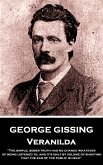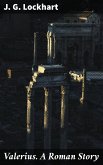In "Veranilda," George Gissing explores the poignant intersections of love, identity, and social class against the backdrop of a fading Roman Empire. The narrative unfolds through the life of Veranilda, a noblewoman entangled in her desires and duties amid a society in flux. Gissing's prose is marked by rich descriptions and an introspective depth that invites readers to ponder existential themes, reflecting the broader literary context of late Victorian realism. The vivid portrayal of characters and their intricate relationships encapsulates the struggles of the individual against societal constraints, making it a compelling study of human emotion and the decay of a civilization. George Gissing, a prominent figure of the late 19th century, often drew from his experiences of poverty and social struggle to inform his writing. His personal challenges and intellectual pursuits, including an affinity for classical literature, articulately shape the philosophical undercurrents in "Veranilda." Gissing's fascination with the complexities of human relationships and the socio-political landscape of his time echoes throughout the novel, creating a nuanced understanding of torment and aspiration within his protagonists. "Veranilda" is highly recommended for readers interested in literary realism, historical narratives, and the exploration of nuanced psychological portraits. Gissing's craftsmanship in weaving intricate human emotions with historical context makes this work not only a compelling read but also a reflective journey through the intricacies of life, urging readers to grapple with their own social conditions and existential musings.
Dieser Download kann aus rechtlichen Gründen nur mit Rechnungsadresse in A, B, BG, CY, CZ, D, DK, EW, E, FIN, F, GR, H, IRL, I, LT, L, LR, M, NL, PL, P, R, S, SLO, SK ausgeliefert werden.









